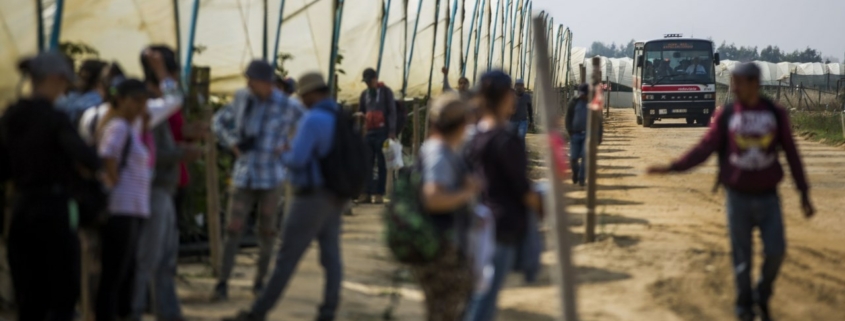Exploitation
Immigrant agricultural workers afraid of eviction and having nowhere to live

The Public Prosecutor’s Office estimates that a criminal network accused of human trafficking earned more than 3 million euros in five years. Last November charges were made against 41 defendants in Beja – the city that has become the epicenter of the circulation of immigrants – who were exploiting 55 foreign workers from various countries such as Timor Leste, Moldavia, and Ukraine.

According to the accusation, companies created by the network – with fancy names such as Apogeu de promessas (Heyday of promises) or Primavera sedutora (Seductive spring) – promised ‘vulnerable’ immigrants in the Alentejo work in agriculture for a much higher price than they will ever be paid while offering ‘degrading’ living conditions. Workers were threatened and even assaulted in some cases.

Mattresses on the floor, soaked in urine. Lack of cleaning a and nauseating smell. Cockroaches and fleas everywhere. Five bathrooms for 100 people. No kitchen. Small storage rooms packed with people, obliged to share a bed. Identification documents often withheld and salaries not paid. Some workers earning between 5 and 10 euros a week were even forced to beg in order to survive.

Among the 41 defendants, there are seven Portuguese. In the accounts of two of them – who allowed the use of their names for registration of vehicles and insurance, fixing bank loans, or providing accommodation for the exploited workers – respectively 210,000 and 285,000 euros were found.

In the account of a solicitor – accused of opening fictitious companies for the defendants, advising them to pay the minimum of taxes and the minimum to workers – the police identified a profit of more than 273,000 euros.

This is not the first time semi-slavery conditions have been encountered by immigrant agricultural workers in the Alentejan province. In November 2022 the Judiciary Police detained 35 people suspected of belonging to a criminal network – again made up of foreigners and Portuguese – dedicated to the exploitation of the work of immigrant citizens, enticed in their countries of origin such as Moldavia, Romania, India, Pakistan and Senegal.

Prosecutor Felismina Carvalho Franco calls in the newspaper Público for the reparation of the victims in case they do not apply for civil compensation. ‘The crime of human trafficking highlights the possibility of putting a price on a human being as if it were a machine, serving only to produce and make a profit. We are faced with victims, who have no other choice but to submit to abuse.’
Enjoy the week Aproveite a semana (pic Público)



